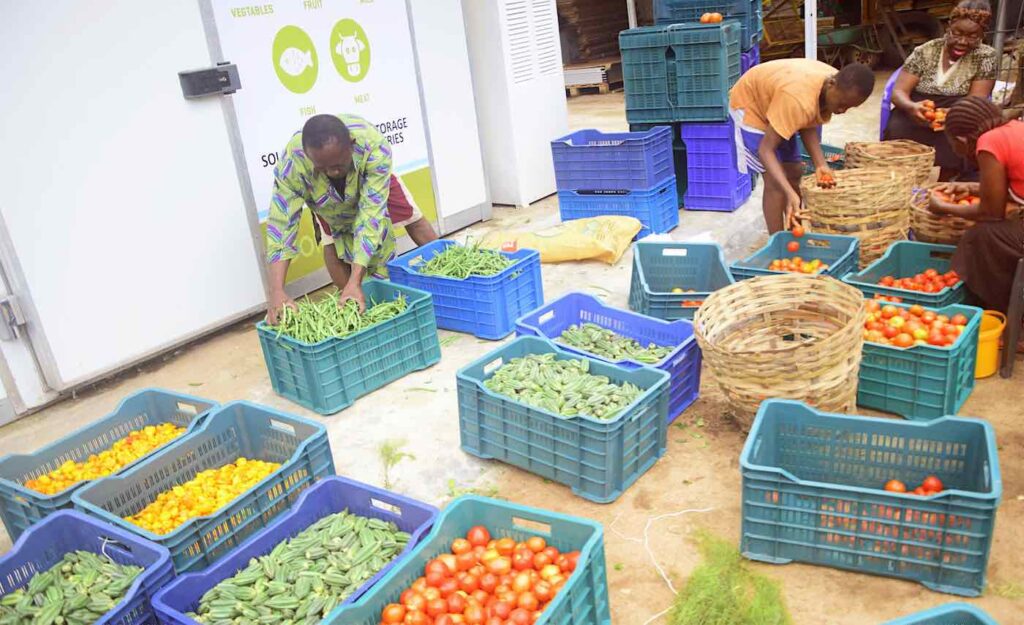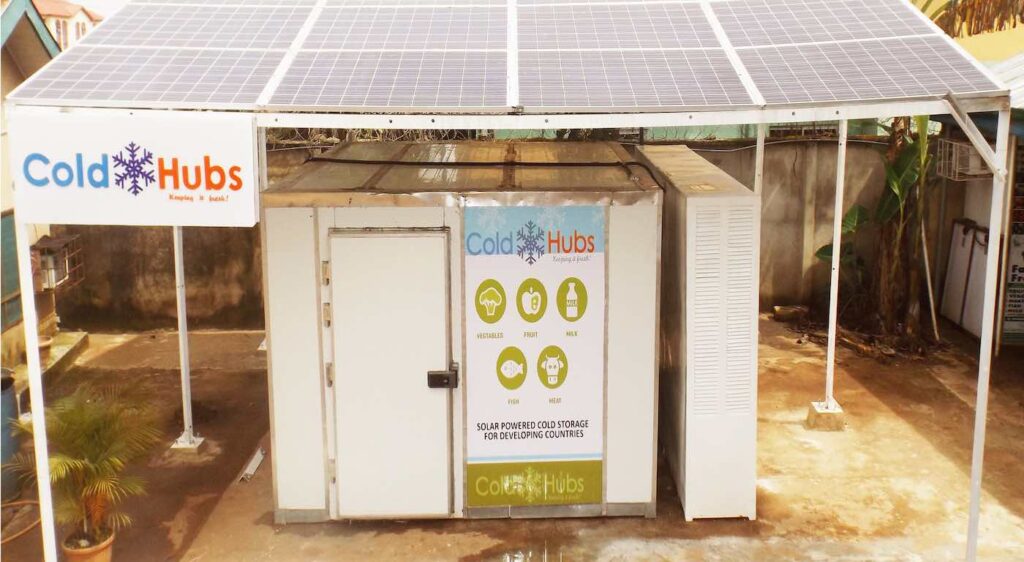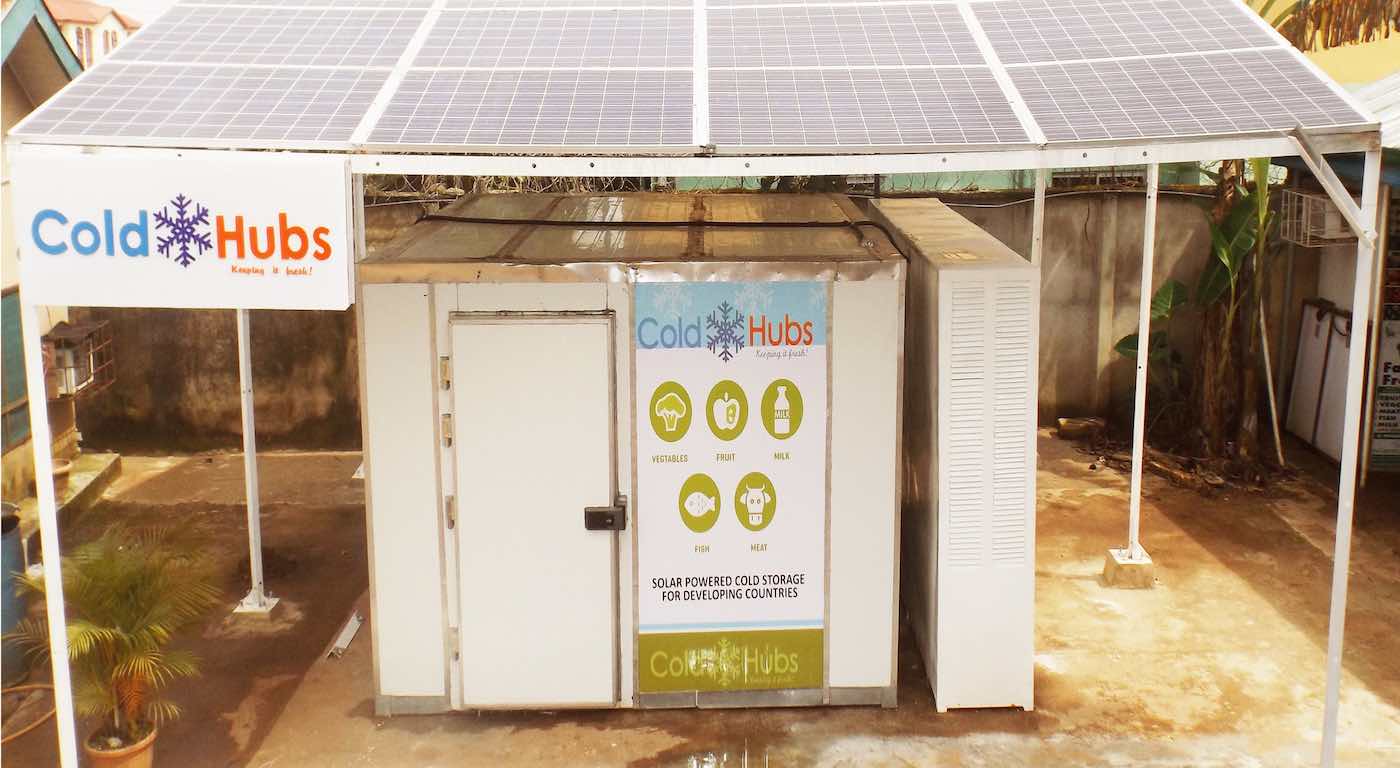One of the great inventions in human history, refrigeration is being brought to rural fish and produce markets in Nigeria through an entrepreneur’s invention of 100% solar-powered walk-in cold storage rooms.

Nnaemeka C. Ikegwuonu has been showered with awards for his pioneering ColdHubs, which use transformative technology that, like all great innovations, tackles several problems at once.
Around 6,000 tons of fish are harvested every day on the rural Nigeria side of the Niger Delta, but due to the tropical climate only 2,000 tons of fish are sold fresh. The story is the same for fruits and vegetables, which on average can survive a maximum of only two days in the West African nation’s heat and humidity.
Designed specifically for off-grid areas, ColdHubs employ rooftop solar panels to generate enough electricity to power the units in all weather conditions, while providing reliable 24/7 autonomous refrigeration. This cuts down on spoilage, but also leads to much higher profits.
A bag of fresh bonga fish should in theory fetch between $20 and $40, but without storage facilities, fishermen either sell the same bag for much less to avoid spoilage, or they smoke or dry the fish and sell it days later—while accepting much less due to the higher value and demand that fresh fish commands.
RELATED: This New German Car is Covered With Solar Panels and Charges As It Drives
ColdHubs currently serves 3,517 farmers and fishermen. The company has so far installed 24 Hubs, saving over 20,000 tons of food from spoilage, and employing 48 women to service the refrigerators. At a rental cost of $1 a day on a pay-as-you-go subscription model, users can increase their income by being able to sell more fresh food.
An entrepreneur for the moment
Once an agricultural radio host, Ikegwuonu grew up on a farm and understood that food spoilage was a major impediment to farmers’ livelihoods.
ColdHub fridges can extend the life of fruits and vegetables from two to 21 days. This increases vendor and farmer profits by 25% on average, says the company. It also increases entrepreneurial energy among the users, as literal days of their life are freed up from having to spend time buying, sourcing, shipping, or throwing away extra produce.

Ikegwuonu won the 2020 Waislitz Global Citizen Disruptor Award and its $50,000 cash prize, which he says he will use “to build two ColdHubs in two fruit and vegetable markets, saving 3,285 tons of food from spoilage yearly, increase the income of 200 users, and create four new jobs for women.”
MORE LIKE THIS: Ghanaian Shoemaker Invents Solar-Powered Hand-washing Basin During Lockdown to Encourage Sanitary Habits
And there’s more than money to the equation.
Ikegwuonu told Global Citizen., “Tackling food spoilage is important because, according to the International Food Policy Research Institute (IFPRI), it is estimated that a 10% reduction in global food loss will result in an 11% decrease in hunger, and a 4% decrease in child malnutrition worldwide.”
“In Nigeria, a 35% reduction in post-harvest tomato loss alone would [impact] vitamin A deficiency for up to 1.1 million children per day,” he added.
It’s a classic economic case of ‘what is seen and what is unseen.’ And Ikegwuonu, Nigeria, and even the world, might never understand how much entrepreneurial, educational, or economic advances could arise from ColdHubs’ presence in the country.
SHARE the Inspiring Ingenuity on Social Media…




















